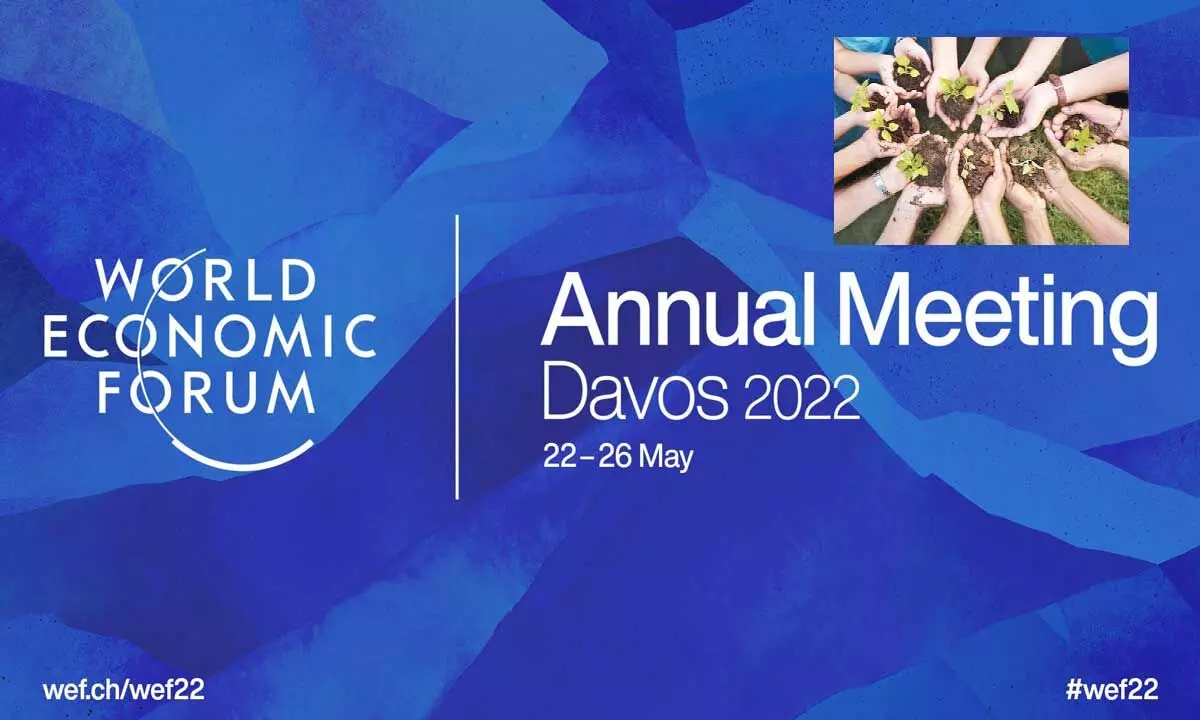Investing in social sectors churns jackpot returns
Every dollar of investment in education, health and personal care jobs will generate 2.3x returns: WEF
image for illustrative purpose

The social jobs of tomorrow could unlock $3.1 trn in GDP returns and create 11 mn jobs by 2030. These jobs include 4.2 mn teaching jobs, 1.8 mn jobs for personal care and service workers, and 900,000 jobs in healthcare
Davos: Making a strong pitch for investing in social jobs, the World Economic Forum (WEF) on Thursday said every dollar of investment in such jobs can generate a multiplier effect of 2.3 times the initial capital. Investing in education, health, personal care and service jobs can yield a triple dividend - boosting economic activity, expanding employment opportunities and generating social mobility, according to a new report published by the WEF on the last day of its Annual Meeting 2022. New modelling of the United States economy suggests that investing one dollar in social jobs would yield a $2.3 return. The model estimates that $1.3 trillion in the social jobs of tomorrow could unlock $3.1 trillion in GDP returns and create 11 million jobs by 2030. These jobs include 4.2 million teaching jobs, 1.8 million jobs for personal care and service workers, and 900,000 jobs in healthcare.
The report said that the associated increases in productivity, increased GDP and tighter labour markets will lead to a parallel increase in real wages. Aided by technology and better skills, the jobs of tomorrow have the potential to lift living standards globally, the WEF said.
After more than two years of turmoil in the global economy and a continued uncertain outlook, leaders need to support workers in pivoting towards a future which works for everyone. Higher wage, higher-quality, future-ready jobs are possible and benefit companies, workers and economies alike. The Good Work Framework, another report released at the Annual Meeting, proposed enhancing job quality through five objectives and associated goals: promote fair pay and social justice; provide flexibility and protection; deliver on health and well-being; drive diversity, equity and inclusion; and foster employability and learning culture. This report draws from the views of employers, unions and experts and was developed in collaboration with Mercer. To support this broad agenda and to mobilise the required investments globally, the first meeting of the Jobs Consortium was also held at the World Economic Forum's Annual Meeting in Davos.
The initiative comprises CEOs and ministers championing productive employment, growth in the jobs of tomorrow, new standards in the workplace and better wages for all. The WEF also said that refugees are a particularly vulnerable group, often excluded from the labour markets of host economies. Over 6 million refugees are estimated to have left Ukraine since February 2022, adding to the estimated 31 million people worldwide, who have been forcibly displaced across borders. As businesses mobilise to assist refugees with integration into host communities and workforces, the WEF's Chief Human Resources Officers community, drawn from over 140 organisations, launched a Refugee Employment and Employability Initiative. The initiative will pilot its work with supporting learning and job opportunities for Ukrainian refugees in Europe in its first phase and draw best practices to build a methodology for supporting system-wide global support from employers for refugees.
"Our ambition is to lead with action and we know that refugees bring a broad set of skills, experience and perspectives that benefit societies and businesses. Helping people find work isn't just a humanitarian effort, it's also good for business," said Jesper Brodin, CEO of Ingka Group.

